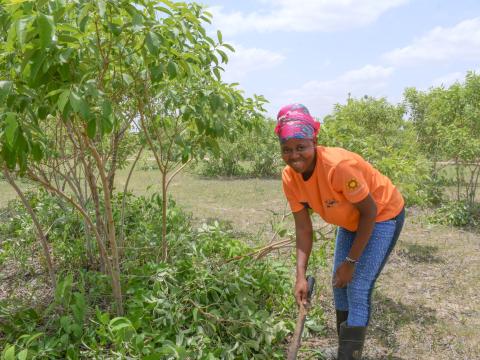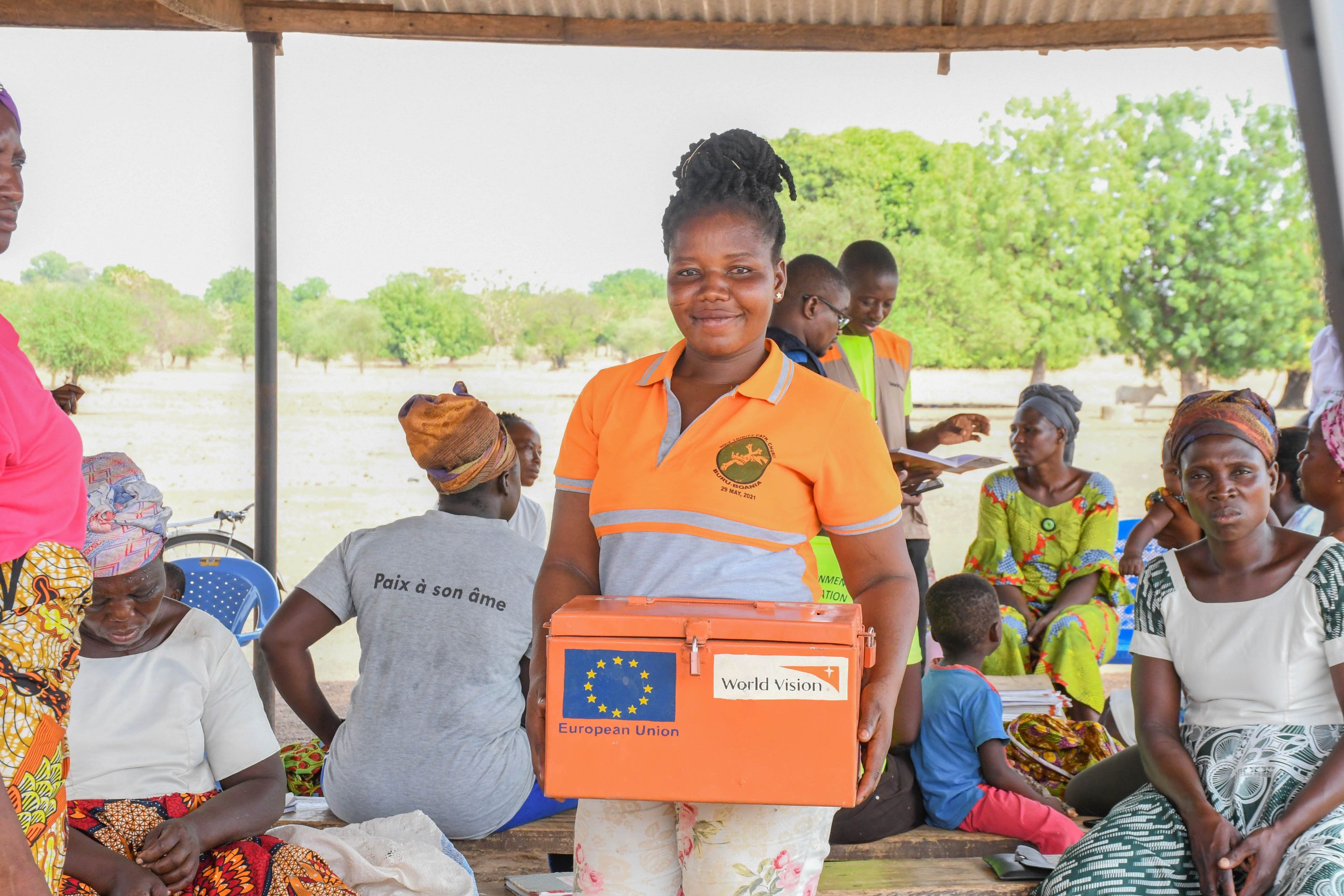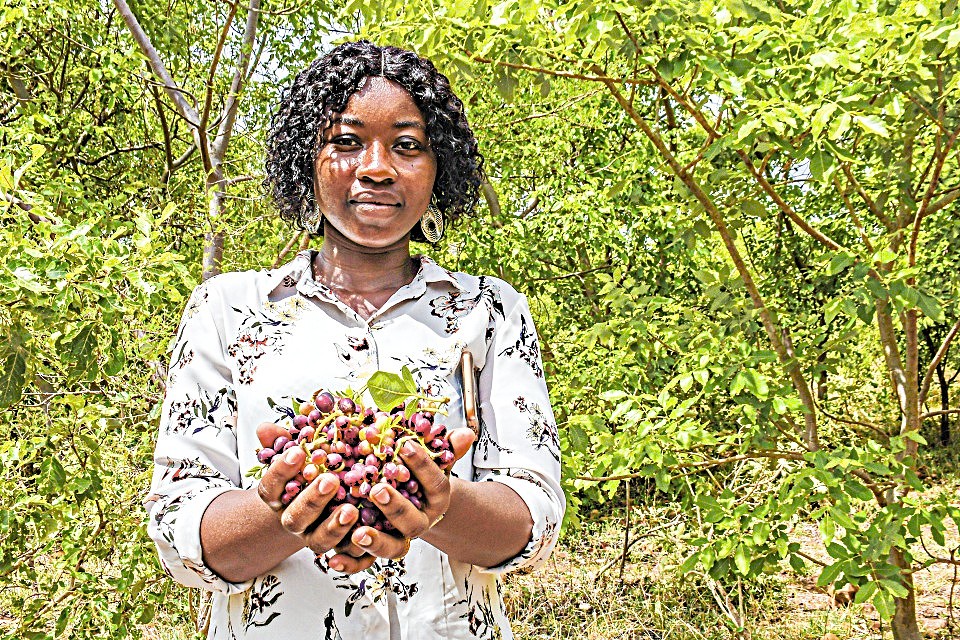LEAN Project Revives Land, Empowers Farmers in Ghana


Battling Land Degradation in Ghana’s Savannah
For years, farmers in Ghana’s savannah ecological zone have faced the persistent challenge of land degradation. This crisis has been caused by logging for charcoal and firewood, unsustainable farming practices, overgrazing and bushfires, and has rendered vast areas of farmland and forest unproductive. Consequences include declining soil fertility, erosion, loss of biodiversity, and reduced crop yields. Traditional tree-planting efforts have largely failed to reverse the damage.
“Investment in tree planting by various stakeholders, including the government, has not helped to restore this degraded landscape. The trees we planted rarely survived beyond one season due to harsh weather conditions. We’re glad FMNR concept introduced by World Vision Ghana is gradually restoring our lands into greener parklands,” said Abdul-Nashiru, Lead Farmer, Navio-Samwo Community.
A New Hope: The LEAN Project
In 2020, World Vision Ghana, in partnership with Rainforest Alliance, EcoCare Ghana, and Tropenbos Ghana, launched the Landscapes and Environmental Agility across the Nation (LEAN) project. By 2024, the initiative had kept over 4,000 hectares of degraded land across 50 communities in Kassena Nankana West District and West Gonja Municipality, directly benefiting more than 50,000 smallholder farmers. The project delivered remarkable results before its closure a few months ago.
“FMNR results are rapid. Widespread adoption could help restore degraded lands across Ghana,” said Abdul-Nashiru, lead farmer.
Innovative Restoration Methods
The LEAN project introduced a range of proven methodologies tailored to the savannah’s unique challenges:
- Farmer Managed Natural Regeneration (FMNR): Encourages sustainable environmental practices allowing regrowth of trees and shrubs from existing stumps and roots.
- Savings for Transformation (S4T): Community-based financial groups offering accessible savings and loans, making financial services accessible at the doorsteps of community members, allowing them to meet their financial needs even in an emergency.
- Community Fire Volunteers (CFV): Local teams trained to prevent bushfires and promote sustainable practices.
- Livelihood Support: Includes small ruminant rearing, beekeeping, and capacity building.

“FMNR is a simple, effective, and low-cost method that quickly revives degraded landscapes. LEAN has transformed income, livelihoods, and environmental protection across our communities.” said Frederick Wuga, Assembly Member, Banyono Community.
Voices from the Field
“To say World Vision Ghana brought hope is an understatement. The organisation has restored life that was nearly lost. We are being transformed, financially and environmentally.” said Thomas Osman, Assembly Member, Busunu Electoral Area in the West Gonja Municipality.
“We’re thrilled to see our forest coming back to life and with it, the lives that depend on it. Biodiversity, grazing areas, and farmland have all improved. We’ve learned to nurture trees instead of cutting them down,” said Bama Mary, Beneficiary, West Gonja Municipality.
“We thought the forest was gone. But FMNR showed us the solution was here all along—hidden beneath the roots of the shrubs and trees we once felled,” said Comfort, Lead Farmer and Regreening Champion, Banyono Community

A Greener Future
With funding from the European Union, LEAN project communities have embraced FMNR, S4T, CFV, and other initiatives, integrating them into daily life. The project has not only restored landscapes but also revitalised livelihoods, proving that sometimes the simplest solutions yield the most profound impact.
As the savannah ecological zone transforms into lush parklands, its future grows, one pruned stem at a time.